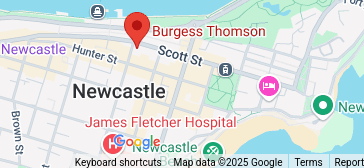Commercial Dispute Resolution
Business & Commercial
Newcastle's leading experts in legal advice
Commercial dispute resolution encompasses a range of processes aimed to resolve a dispute between two or more parties. The commercial disputes we resolve include commercial contract disputes, leasing disputes, partnership, and shareholder disputes. We use a wide range of mechanisms to resolve these disputes including informal and formal negotiation, mediation, arbitration, and court proceedings.
The team at Burgess Thomson are highly skilled in negotiation, with our managing partner, James Thomson, having studied a Program on Negotiation at Harvard Law School. Through negotiation we can resolve your dispute quickly and discreetly without the need for more expensive methods such as Mediation and Court litigation.
GET A QUICK QUOTE
Enter your details for an obligation free quote.
LEARN MORE
Arrange a consultation with our Small Business Lawyers for sensible small business-focused legal advice.
FAQ's
What are the advantages of using negotiation to resolve a dispute?
Over 90 per cent of commercial disputes are settled prior to a court or arbitration hearing through negotiation methods. This is because negotiation has many advantages as a commercial dispute resolution process. Benefits to negotiation include its potential for a speedy resolution, the inexpensive nature of participation, and the fact that is a voluntary process for the parties involved. Negotiation may also preserve and in some cases enhance the relationship between the parties once they have reached an agreement. Negotiation also does not require a third party to be involved. This means all information can remain confidential and private between you and the other party.
What is mediation?
Mediation is a process whereby a neutral third party facilitates negotiations between the parties to a dispute to help them find an agreed outcome. The mediator is actively involved but only as a facilitator the conversation, they cannot adjudicate or say who is right or wrong. In mediation the parties retain control over the decision to settle the dispute and on what terms. Often before commencing litigation, the court will refer parties to attend a form of mediation. This provides the opportunity to resolve the dispute in a more cost effective, quicker way.
What is arbitration?
Arbitration is similar to mediation. It involves two disputing parties setting out their respective arguments and disputed claims before a decision maker. The decision maker then sets a binding determination on your dispute. This binding determination sets arbitration apart from other forms of ADR where you may have more say on the outcome.
When are court proceedings necessary?
Litigation is an expensive, time consuming form of dispute resolution that is often viewed as a last resort option. While litigation allows for a binding decision to be made potentially in your favour, it should only be considered if the parties have already attempted to negotiate or resolve the dispute an alternative way. Court proceedings involve filing fees, disbursements, and legal costs for the other party if you are unsuccessful. Therefore, it is important to consider other forms of dispute resolution before starting an action in court.




